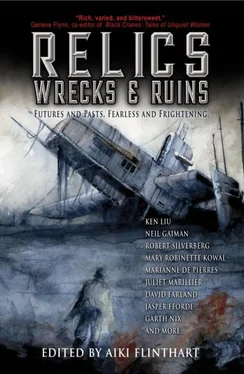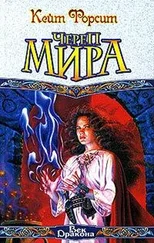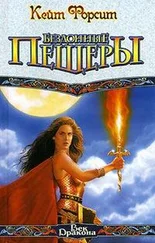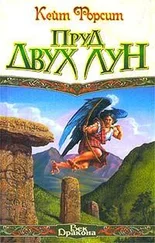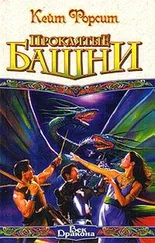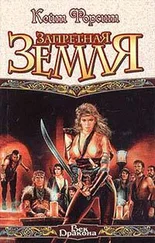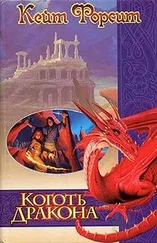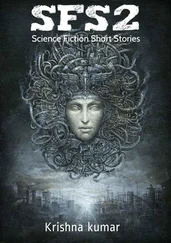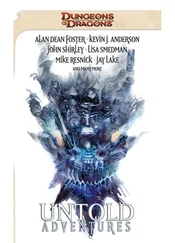They are wrong. We are born, we grow, we die, just like any other living creature. It is true that time moves to a different rhythm in the realm of Annwn but that does not mean we do not know death, as the bards have sung so falsely for so long.
For only those that know they will die can be wise. I have been called many things but of them all, Morgan the Wise is, I hope, the truest.
I was fifteen when I first understood death and fifteen when I first lay with a man, clenching the seeds of his loving deep within me so that another child could sprout into life. Like the two gatehouses of a bridge spanning a turbulent river, the end of one life and the beginning of another mark my passage from child to woman, from sure innocence to uncertain knowledge. And so it is the story of my fifteenth summer that you must know, if you are to understand how I came to be who I am.
I was born Margante, eldest granddaughter of Afallach, lord of Annwn, called by some the Fortunate Isle, for its richness and beauty; by others the Isle of Apples, for its fruit-laden orchards; and yet again, Caer Siddi or the Fairy Fortress, by those who have cause to fear the fay.
Like my home, my name changes according to the namer. Those who love me most call me Morgan, a nickname given me by my youngest sister Thitis when first she began to babble.
There were nine of us, a blessed number to those of our kind. When I was fifteen, Thitis was little more than two years old and the joy of my heart. I do not know if I loved her more at play, squealing with joy, or at night, when I carried her to bed, her downy head nestled against my shoulder. For my mother had died in the bearing of her, and so I was the only mother Thitis ever knew.
You may wonder why it was not my mother’s death that first brought me face to face with mortality. You must realize my mother had borne nine daughters in thirteen years. She was worn and tired, and short of temper. She had believed the tales the bards sang, of the Fortunate Isle where death and sickness were unknown, where crops grew without cultivation, and the Tylwyth Teg danced the nights away. She was human, poor thing, seduced from her own people when only a girl herself. My father, Owain, rode up out of the water, smiling, holding down his hand to her. She took it, laughing as he drew her up before him and galloped back into the misty waters of the lake. Of course, she regretted it afterwards but it was too late then. We of the Tylwyth Teg do not let go easily.
So, although I was sorry when my mother died, my grief was not very deep nor lasting, and certainly did not make me understand the fragility of my own life. I was healthy and strong, and busy with my own concerns. For, despite what the bards sing, the gardens and orchards of Annwn do need care. Not as much as the fields of humans, of course. We of the fay do not mind dandelions and clover mingling with our corn and beans, and dislike seeing things laid out in rows and squares, as you humans labor so hard to achieve. We let the wind and the birds and the bees help us in our labor, and sing as we wander amidst the flowers and the trees, and so you think what is done with love and merriment cannot be true work. But all of us have our work to do, even a princess with the blood of gods and goddesses running in her veins.
Always, too, there were my lessons. I was of the Tylwyth Teg and magic was bred in my bones. I was hungry for such knowledge and so at the age of twelve, not long before my mother died, I was given into the care of the druids, to learn what I could.
It was at the druids’ school that I first met Anna, daughter of Uther Pendragon, who had been sent to the Isle of Apples to learn the seven arts. We were distant cousins of sorts, for Anna could trace her lineage back to Llyr of the Sea through her mother Igraine, and Llyr had been married to my grandfather’s sister Penarddun.
It may seem strange to you that eleven generations had lived and died between Penarddun and Anna, and only one between my grandfather and me, but that is the nature of time in Annwn.
Anna was a tall, fair girl, the tallest and fairest I had ever seen. Beside her I was little and dark, which at first made me hate her. No one could hate Anna for long, though. She was like a soft white cat with round blue eyes and a satisfied purr. It did not take her long to win me over completely. She admired my gray eyes and nicknamed me Argante, and I called her Ermine for her thick pelt of pale hair.
We were as close as any sisters those three years we studied together. I must admit my lessons suffered, for we were always laughing and whispering together at the edge of the grove instead of listening to our teachers. Anna and I told each other everything in those first ardent years of our friendship and so, you see, it was my fault that her brother came raiding upon our shores.
They say I hate Arthur, son of Uther Pendragon, and indeed I have reason to. Yet did I not give him Caledfwlch, forged here upon our shores and imbued with the powers of Annwn? And when the magic of the sword was not, in the end, enough to save him, did he not know to call for me and did I not go? Would I have done so if I hated him as I should?
The stories they tell of Arthur, which you listen to with such eagerness, they are like an apple which has been baked with honey and studded with cloves and hung from a silk ribbon. It no longer looks like an apple or smells like an apple, but cut it open and inside you will find pips. Plant these seeds and an apple tree will grow.
So here is the truth of it, the apple beneath the spices and honey. I hate Arthur for his murdering and plundering, and for the blood he spilled that day, and yet it was because of that blood that I first felt sorrow and terror and joy too, in the flame that can leap between man and woman, and in the painful tenderness that comes with the bringing forth of new life. With this knowledge, I learned to see beyond the flimsy membrane that separates life and death. If it was not for Arthur I may never have become, in the end, Morgan the Wise.
It was a bright autumn day when Arthur’s ship Prydwen sailed through the mists towards our shores. Belle Garde shone upon its hill like a blue flame, its many-faceted towers glittering where the sun struck. I was playing in the garden with the youngest of my sisters, Vevan and Thitis, while Anna reclined on the grass, being far too lazy to want to toss a ball around.
Suddenly she lifted herself up, pointing. “Look, a ship!”
We all stood staring at the boat with its high sternpost and large steering oars, its great square sail painted with some device in red. We were rather surprised, though it was not unknown for strangers to find their way through the haze of mirage that conceals our realm. In those days, the doors between the worlds stood ajar and there was much traffic between those of human blood and those of the fay. The doors are all locked now, of course, and only those that have the key may open them. We of the Tylwyth Teg are not so trusting as we once were.
As I stood gazing at the ship, I felt an odd frisson down the back of my neck, as if someone had crept up behind me and blown on my skin. I shuddered and rubbed my arms, although I was not cold.
“Let’s go down to the dock and see who it is,” Vevan cried. “We aren’t expecting visitors, are we, Morgan?”
I shook my head. “Not that I know of. Surely Taidi would’ve let me know if he was expecting anybody?” I dusted leaves and grass from my skirt and held down my hand to Anna. “Coming?”
“Of course,” she answered. “Miss the one exciting thing to happen here since I got back? Let’s hope it’s a boatload of handsome young warriors who have lost their way. Maybe we can entice them to stay awhile?”
I smiled, though I still felt that puzzling tightening of my nerves. I was not concerned by the impact of unexpected guests on our larder, for we always had the cauldron of plenty to tide us over any need for food, nor was I worried about where to house the travelers, for my grandfather’s castle was vast. I felt no fear, for what could one small ship do against the warriors of the Tylwyth Teg? It was a chill akin to fear that troubled me, however, and being still a child myself, I shrugged it away and went running down through the garden as eagerly as the others.
Читать дальше
